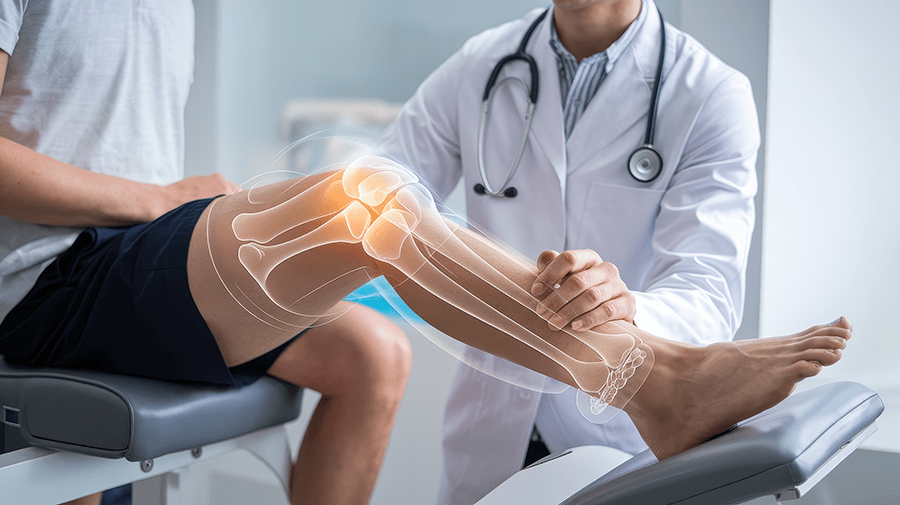Knee pain has a sneaky way of showing up when you least expect it. Maybe it’s after a weekend hike, a sudden twist while getting out of the car, or simply from years of climbing stairs and running errands. Because your knees are involved in almost every movement you make, even mild discomfort can disrupt your day.
The big question is: should you just rest and wait for the pain to subside, or is it time to visit a specialist in Singapore for knee pain treatment?
Knowing the difference can save you from weeks of frustration and, in some cases, from long-term damage that could have been prevented with early treatment. Let’s walk through how to tell the difference, what’s really going on inside your knee, and the steps you can take to keep moving comfortably.
Understanding Knee Pain: Why It Happens
Your knees are more than just simple hinges. They’re incredibly complex joints. Each knee is made up of:
- Bones (femur, tibia, and patella)
- Cartilage that cushions and absorbs shock
- Ligaments that hold the bones together and provide stability
- Tendons that connect muscles to bones
- Bursae — small fluid-filled sacs that reduce friction
These structures work together to bear your body weight, keep you stable, and allow smooth bending, straightening, and rotation.
Knee pain can arise from a variety of causes:
- Overuse — repetitive motions like running, squatting, or prolonged kneeling can irritate tissues over time.
- Minor injury — small twists, awkward landings, or stumbles can strain soft tissues.
- Sudden strain — lifting heavy objects or an unexpected misstep can overload the joint.
For more about knee pain symptoms, read here.
Signs That Your Knee Pain Will Improve With Rest
Not every twinge means a trip to the clinic. Sometimes, your knee just needs a short break to recover. Self-care is enough when:
- Discomfort follows a clear cause, such as a long hike, extra gym session, or helping a friend move furniture.
- Pain is mild to moderate and noticeably eases with rest.
- Symptoms improve within a few days to a week with RICE (Rest, Ice, Compression, Elevation) and over-the-counter anti-inflammatory medication.
For more about RICE and sports injury management, read here.
Warning Signs That You Should Get Your Knee Checked
Certain symptoms signal that your knee may need more than home care. See a medical knee specialist promptly if you experience:
- Pain that lasts longer than two weeks or worsens despite rest
- Swelling, redness, or warmth around the joint
- A popping or snapping sound at the moment of injury, followed by pain
- A sensation of the knee “giving way” or feeling unstable
- Increasing stiffness or reduced range of motion
- Severe pain interfering with sleep or daily activities
- Pain connected to a previous injury or existing arthritis
These signs could indicate structural damage, progressive arthritis, inflammation, or infection—all of which require timely treatment to avoid long-term complications.
Common Knee Conditions That Need Medical Attention
Besides the above warning signs, there are some knee issues that cannot heal fully on their own and would require professional knee pain treatment from a specialist in Singapore. These include:
- Meniscus tears — damage to the cartilage cushioning your knee, often caused by twisting injuries
- Ligament injuries — such as ACL or MCL tears that cause instability
- Osteoarthritis — gradual breakdown of cartilage and joint degeneration
- Bursitis and tendonitis — inflammation of bursae or tendons from overuse
- Infection or inflammatory arthritis — requiring urgent medical intervention
When Knee Surgery Becomes Necessary
While many knee problems respond well to non surgical treatment, surgery may be the best option when:
- Pain is severe and persistent despite months of conservative care
- Your knee feels unstable or cannot bear weight
- Imaging confirms significant structural damage
Common surgical options include:
- Partial Knee Replacement — replacing only the damaged part of the joint, preserving more natural movement
- Total Knee Replacement — replacing the entire joint, usually for severe arthritis or widespread damage
Not Sure What's Happening With Your Knees?
It’s not always easy to tell if your knee pain is minor or a sign of something more serious. Getting professional help can give you the peace of mind you need.
At Alps Orthopaedic, we offer tailored care in Singapore for every stage of knee pain treatment, from early intervention to non-invasive treatments and surgical solutions. Whatever your lifestyle or activity goals, we’re here to help.

